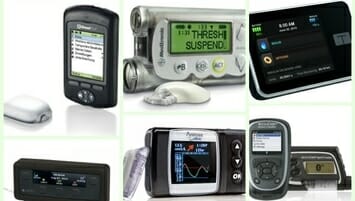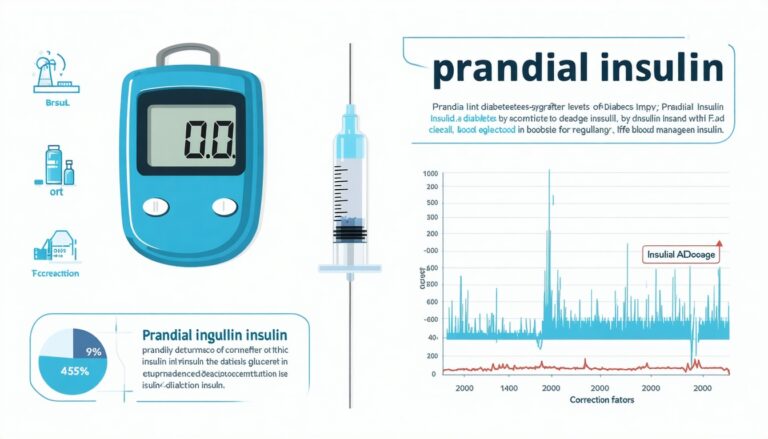Recognizing Diabetes: Understanding Symptoms and Knowledge
Grasping the knowledge of diabetes, its signs of occurrence, its diagnosis, and how to manage the disease is pivotal in ruling over this condition. This article delves into information about diabetes, including its categories, symptoms to be cautious of, heralding risk factors, defense measures to be taken, diagnostics approaches, and effective disease control strategies. By deepening our comprehension of diabetes as well as growing our knowledge regarding the use of insulin and disease management approaches, we could make lifestyle decisions that enhance well-being while concurrently reducing the risk of complications. So stay connected as we bring forth insights about its common occurrence and the latest studies and awareness campaigns.
Understanding Symptoms and Types of Diabetes
Often-encountered Signs of Diabetes
Diabetes unfolds through symptoms that may hint at its existence, like an amplified feeling of thirst, recurring visits to the restroom, losing weight in spite of maintaining eating patterns, and frequent fatigue. For instance, those enduring diabetes often feel thirsty and end up visiting the restroom more often due to amplified urination.
Unexpected weight loss in spite of the same usual food habits can be a sign of diabetes. Further, individuals may feel unusually fatigued despite acquiring enough sleep.
Primary Types of Diabetes
Diabetes primarily could be classified into type 1 and type 2. Type 1 diabetes relates to a condition wherein the body is unsuccessful in generating insulin, leading to rising blood sugar levels, whereas Type 2 diabetes is identified by insulin resistance, implying that the insulin is not properly utilized by the body, leading to high blood sugar levels as well.
For instance, those suffering from type 1 diabetes require insulin injections, as their bodies don’t naturally produce this hormone. In contrast, individuals with type 2 diabetes may initially manage their condition through lifestyle modifications such as diet changes and exercise, before requiring medications or insulin along the line if these measures prove to be unsuccessful.
Significance of Diabetes Awareness and Knowledge in Communities
The need to raise awareness about diabetes is crucial for its detection and prevention. Without proper understanding, misconceived notions about diabetes may lead to community-level discrimination. For instance, certain people might wrongly perceive that only people with certain eating habits are affected by diabetes, leading to unfounded judgment and discrimination.
Community education initiatives play a role in enhancing diabetes understanding amongst communities and their families. These endeavors significantly improve health outcomes by providing detailed information about the condition and addressing gaps in diabetes-related knowledge.
By increasing awareness, these programs empower individuals to make informed decisions about their health and lifestyle, especially pertaining to diabetes management.
The Role of Community Education Initiatives
Community education initiatives not only offer enlightenment about diabetes but also provide targeted guidance on the effective management of the condition. Through various means such as workshops, seminars, and informative leaflets, these initiatives equip participants with strategies for maintaining a diet and engaging in routine physical activities to prevent or manage diabetes.
Moreover, local health agencies often work in unison with community organizations to ensure that information about the prevalence of diabetes and its impact on the population’s well-being is readily available. This collective effort develops an environment where knowledgeable individuals can gather information from sources such as healthcare professionals or authorities like Google Scholar or DOI rather than relying on possibly misleading sources such as social media or unverified websites.
Health Literacy and Diabetes Management
Comprehending Health Information
For people living with diabetes, being health literate and having a good comprehension of their condition is vital in deciding their well-being. Having knowledge of diabetes means being aware of the importance of monitoring blood sugar levels, managing medication, and making lifestyle modifications.
Having health literacy and lacking knowledge and awareness can present challenges in effectively managing diabetes. When people are uninformed about their condition, they might find it difficult to follow treatment plans or to make lifestyle changes. This can lead to uncontrolled blood sugar levels and an increase in the risk of complications for those who have knowledge about diabetes.
To encourage individuals with diabetes to take control over their health, providing resources to raise awareness and to engage in studies. Clear and easily understandable materials related to diabetes and its management can be greatly improved.
Education as a Source of Empowerment
Initiatives that cater to the language preferences and learning styles of the individuals are crucial in promoting self-education of individuals with diabetes. Visual aids such as infographics or videos can enhance the comprehension of participants with varying abilities.
Increasing awareness through community-based programs and awareness-enhancing initiatives plays a cardinal role in enhancing the health scenario of people with diabetes. These initiatives not only offer knowledge but also foster a supportive environment where individuals share experiences and learn from each other about effective strategies to manage their condition.
- Providing educational resources is seen as empowering the affected individuals with diabetes.
- The promotion of community-oriented programs paves the way for an environment where individuals exchange expertise and wisdom about diabetes.
Key Factors Influencing Knowledge About Diabetes
Factors such as income status, education level, cultural milieu, and personal awareness significantly influence the understanding of individuals about diabetes. For instance, people with limited income or education could have limited knowledge due to poor accessibility to resources and healthcare services.
Access to healthcare services shapes people’s knowledge about diabetes. Those with access to professionals and resources are more likely to receive authentic information about the condition, which leads to an understanding of insulin use and overall diabetes management. Limited access to these services among certain groups may result in skewed knowledge levels.
Language barriers and challenges in health communication add to the disparities in diabetes knowledge across different groups. When individuals face difficulties in understanding health-related information due to language differences or low health literacy, it directly impacts their understanding of the condition and factors related to it.
Preventing Diabetes: Awareness and Measures
Vital Steps Towards Prevention
Adopting certain measures such as maintaining an exercise regimen, sustaining healthy eating habits, managing weight, getting educated about diabetes, and raising awareness among people are important in preventing type 2 diabetes. Activities such as walking, swimming, or cycling for 30 minutes daily can considerably reduce the probability of contracting the disease. Following a diet consisting of fruits, vegetables, and whole grains, along with lean proteins and healthy fats, is recommended. Sustaining body weight through portion control and mindful eating habits can lower individuals’ chances of contracting diabetes.
Early Detection Through Regular Screening
Screenings and awareness of symptoms are vital in detecting prediabetes or the early stages of diabetes before it further complicates. Health professionals often suggest blood tests to measure glucose levels as part of healthcare measures. These tests help assess one’s knowledge about diabetes while raising awareness among individuals. Detecting these conditions at an early stage allows people to make necessary lifestyle modifications under medical supervision to thwart further progression and complications related to diabetes.
Understanding Complications Associated with Diabetes
Risk Increasing Factors
Subjected to the risk of developing complications, including heart disease, kidney failure, nerve problems, vision impairment, and similar issues are individuals diagnosed with diabetes. High sugar levels in the blood, escalated blood pressure, and high cholesterol could amplify the risk of suffering from these conditions. To elucidate, persistently increased blood sugar can incur harm to the blood vessels situated in various regions of the body.
The effective method to significantly reduce the threat of such adversities related to diabetes is through regulating blood sugar levels and monitoring blood pressure and cholesterol while also gaining updated information about the disease through exploration and study. It requires the execution of a diet that contains low sugar and saturated fats, supplemented by regular exercise. Owning a proper understanding of their situation enables individuals to have better authority over their diabetes and lessen the potential for complications.
Importance of Regular Check-ups
Regular check-ups play a significant role for people with diabetes as it allows healthcare professionals to monitor their health status closely. These check-ups allow doctors to assess an individual’s overall health and modify their treatment plan. Adhering to prescribed medications is fundamental for individuals in managing diabetes effectively and in the prevention of further complications.
Technological Progress in Diabetes Management
Infinite Glucose Monitoring (CGM) Systems
CGM systems play a key part in gathering data on blood sugar levels to gain insights about diabetes knowledge among respondents. These devices provide real-time information, thus empowering individuals to make informed decisions regarding their diabetes management and enhancing their knowledge about the condition. By tracking glucose levels throughout the day and night, CGM systems help understand how different factors, like food, exercise, medication, and study participants’ expertise, influence blood sugar levels. For instance, if someone notices a fall in blood sugar levels after exercising, they can consume a snack to prevent hypoglycemia.
In addition, CGM systems reduce the necessity for repeated finger pricks by offering data without the nuisance associated with traditional glucose monitoring methods hence simplifying it for the knowledgeable respondents. So, it not only simplifies the routine of monitoring blood sugar but also brings down the discomfort associated with frequent tests.
- Advantages include real-time information about blood sugar levels and a reduction in the need for frequent finger pricks.
- But they need calibration and replacement of sensors.
Insulin Pumps
Insulin pumps are devices that automatically deliver insulin as per the individual’s body requirement diabetics management understanding. This method provides flexibility compared to traditional insulin injections as it allows modifications in dosage based on changes in physical activity, food schedules, and one’s understanding of the condition.
The usage of insulin pumps also helps in reducing the risk of hypoglycemia and complications such as seizures or loss of consciousness in individuals living with diabetes. By maintaining blood sugar levels and accruing knowledge about diabetes, affected individuals can reduce their chance of long-term complications like nerve damage or limb amputation.
Impact of Health Literacy on Diabetes Outcomes
Improving Glycemic Control
Individuals with adequate health literacy and understanding of diabetes often achieve better control over the condition. This implies improved control over blood sugar levels meaning they can manage them effectively. Those with diabetes knowledge are more likely to understand the significance of monitoring their blood sugar levels.
Having an apt understanding of the diabetes situation may result in better management of the condition through proper diet, adequate exercise, and adherence to medication. Lack of understanding or knowledge about the condition leads to treatment plan misunderstandings and medication errors. This knowledge absence can lead to wrong self-care practices and increase the chances of complications leading to hospitalization.
For example, those with limited health literacy may struggle to comprehend instructions from healthcare providers on managing their condition at home or identifying symptoms needing medical attention. As a result, those knowledgeable about the condition would be more susceptible to hospital admissions due to poorly managed diabetes.
To alleviate this problem, it’s essential for health literacy interventions to prioritize better communication between healthcare providers and patients to enhance this understanding. Using easily comprehensible language while explaining plans and providing plainly understandable instructional materials can achieve this.







